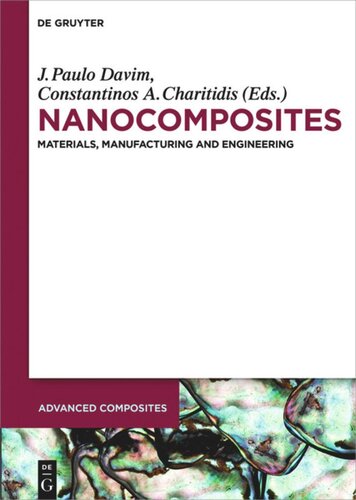

Most ebook files are in PDF format, so you can easily read them using various software such as Foxit Reader or directly on the Google Chrome browser.
Some ebook files are released by publishers in other formats such as .awz, .mobi, .epub, .fb2, etc. You may need to install specific software to read these formats on mobile/PC, such as Calibre.
Please read the tutorial at this link: https://ebookbell.com/faq
We offer FREE conversion to the popular formats you request; however, this may take some time. Therefore, right after payment, please email us, and we will try to provide the service as quickly as possible.
For some exceptional file formats or broken links (if any), please refrain from opening any disputes. Instead, email us first, and we will try to assist within a maximum of 6 hours.
EbookBell Team

0.0
0 reviewsNanocomposites are currently defined "as a multiphase solid material where one of the phases has one, two or three dimensions of less than 100 nanometers or structures having nano-scale repeat distances between the different phases that make up the material".
The use of nanocomposites with polymer, metal or ceramic matrices has increased in various areas of engineering and technology due to their special properties, with applications in bioengineering, battery cathodes, automotives, sensors and computers, as well other advanced industries. The present volume aims to provide recent information on nanocomposites (materials manufacturing and engineering) in six chapters. The chapter 1 of the book provides information on synthesis and characterization of ceramic hollow nanocomposites and nanotraps. Chapter 2 is dedicated to recent advances on preparation, properties and applications polyurathene nanocomposites. Chapter 3 described preparation, characterization and properties of organoclays, carbon nanofibers and carbon nanotubes based polymer nanocomposites. Chapter 4 contains information on mechanical and wear properties of multi-scale phase reinforced composites. Chapter 5 described modeling mechanical properties of nanocomposites Finally, chapter 6 is dedicated to polyanaline derivates and carbon nanotubes and their characterization.
This book is the essential reference for academics, materials and physics researchers, materials, mechanical and manufacturing engineers, and professionals in nanocomposite-related industries.